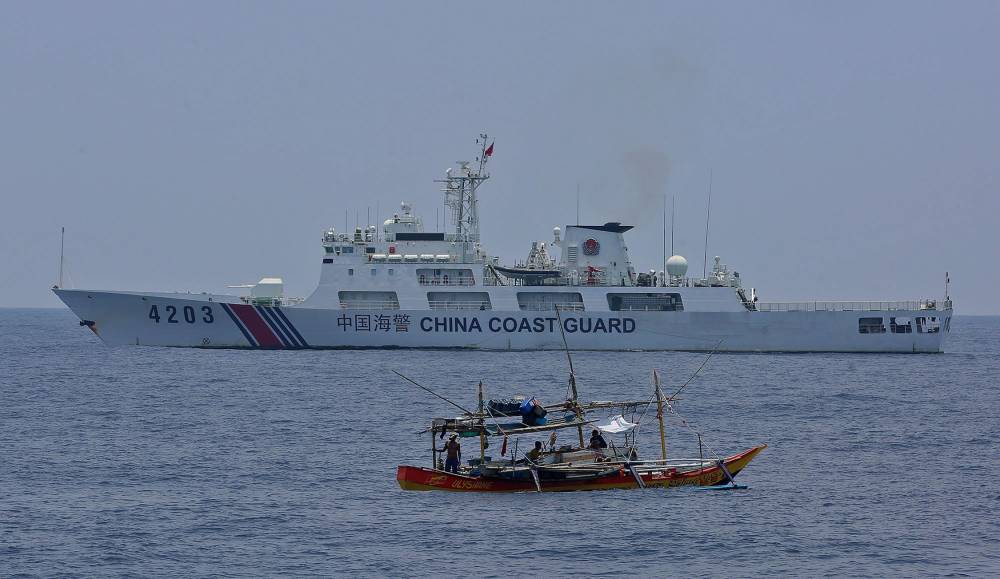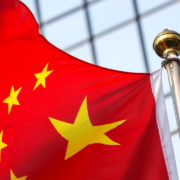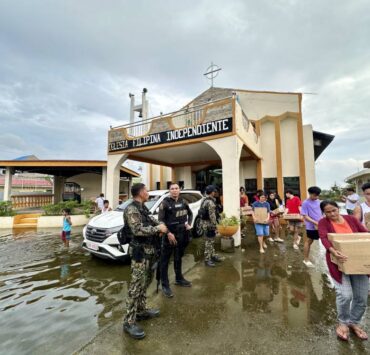PH youths ‘clueless’ on WPS row ‘downplayed’ under Du30, says PCG exec

BAGUIO CITY – The Duterte government buried or downplayed reports about Chinese aggression at the West Philippine Sea from 2016 to 2022, preferring “diplomacy” by initiating friendly relations with Chinese premier Xi Jinping to defuse tensions despite the 2016 arbitral ruling that already recognized Philippine sovereignty in these waters.
The result: young generations remain clueless about the extent of the territorial crisis, and still believe the WPS is currently being “disputed” because of the absence of information during the term of President Rodrigo Duterte, said Philippine Coast Guard Commodore Jay Tristan Tarriela, who spoke at the first National Security Council (NSC) roadshow that was held here on Oct. 23.
“Children who were born in 2016 would be in grade school now and would be clueless about the West Philippine Sea,” he said, because of the government’s silence during the Duterte administration so as not to provoke the Chinese government.
Only three news reports regarding Chinese intrusions exploded in those six years, Tarriela said, which were brought to the media by fishermen, not by the government.
Among these news reports were the 2016 incident where an 11-man crew fishing boat was rammed by Chinese Coast Guard rubber boats at Panatag (Scarborough) Shoal in 2016, which Duterte dismissed as an ordinary “collision.”
Tarriela also cited the Chinese water cannon attacks of two Filipino boats that were headed for the Ayungin Shoal in 2021, and the swarming of Chinese militia vessels at the Julian Felipe Reef, also in 2021.
The perception that the WPS is being contested was also a major response when Tarriela quizzed the roadshow’s participants.
“The correct answer is no,” he said, because a tribunal of the United Nations Permanent Court of Arbitration had ruled in June 12, 2016 that China’s nine-dash line claims over the South China Sea violated maritime laws and cannot be used by Beijing to commandeer WPS which is within the country’s 200-mile exclusive economic zone.
Transparency
The roadshow i part of a transparency program to counter Chinese disinformation and to correct speculations about the country’s dispute with Beijing, Tarriela said.
“Six years of [the Duterte government] made us believe that diplomacy has been successful and that is not a hundred percent accurate,” he said.
“People need to understand why the WPS is ours and what we are fighting for,” Tarriela said.
“Hindi dapat pinagdududahan (We should not be suspicious)” about our sovereign rights over the WPS, he added, to explain why the administration of President Marcos has been releasing detailed accounts of Chinese offenses at the country’s sea border.
He said full disclosure about Chinese aggression was necessary as a foreign policy statement because many nations have been uncertain about the Philippine’s position when Duterte set aside the 2016 arbitral decision.
Standing up to China regarding WPS is a “uniting issue” for all Filipinos regardless of whether they support Marcos, Duterte or the late President Corazon Aquino and her son, the late President Benigno Aquino III, Tarriela said.
It was Benigno Aquino who sought arbitration in January 22, 2013 following the 2012 standoff between the Philippines and China over Bajo de Masinloc, he said, although the feud was ignited in 1995 when China seized Panganiban Reef.
Duterte, he said, “did not carry out enough effort to leverage the landmark victory award.”
Cornelio Valencia Jr., NSC assistant director general, said the country is “in the vicinity of four flashpoints” of potential crises because the “Indo Pacific Region is a main theater of competition between the United States and China.” The security strategies of European countries like the United Kingdom, Germany and Denmark, as well as of Australia, Canada and Japan have also emphasized the region’s importance, Valencia said.
War
He said the government will soon develop security action plans for the country’s other sea borders in the north, east and south. NSC is also collaborating with the academe regarding the inclusion of the WPH in school curriculum, Valencia said.
“Few Filipinos know where the WPS is,” observed Tarriela.
One of the local village leaders asked the NSC if the country’s alliances with other nations would bring war, or justify the return to the country of United States military bases, which Valencia attributed to “fear mongering.”
He said war was unlikely because “China won’t want our allied nations to gang up on it,” given that its own allies – Russia and Iran – are embroiled in their own conflicts. Russia invaded Ukraine while Iran recently joined the Gaza conflict against Israel.
War was a subject of discourse during the Duterte administration, Tarriela pointed out. The former president used the threat of war to “justify his inaction,” he said.
Recent surveys show more Filipinos will shun politicians who are perceived to be pro-China – suggesting that future lawmakers and presidents would maintain the country’s position on WPS and ‘not promise to jet ski only to turn around and say it was a joke.” It was an apparent reference to a campaign boast made by Duterte about confronting Chinese vessels at the WPS.
“External aggression” do require local governments to prepare a defense plan of their own, as well as increase their respective civilian and military reserve forces, said Ernesto Torres, executive director of the National Task Force to End Local Communist Armed Conflict.
During the Sept. 9 session of the Baguio City Council, the outline of a community defense plan for Baguio and Cordillera towns was presented by Brig. Gen. Ferdinand Melchor dela Cruz, commander of the Army’s 501st Infantry Brigade.
Dela Cruz formed the Joint Community Defense and Development Support Task Force to help craft action plans against “external threats and national emergencies,” by tapping all citizens regardless of “religious creeds, ethnicity or political inclinations.” He said the Baguio and the highlands were strategically relevant because the mountains became the “last bastion” for invading forces like Japan during World War II.

















